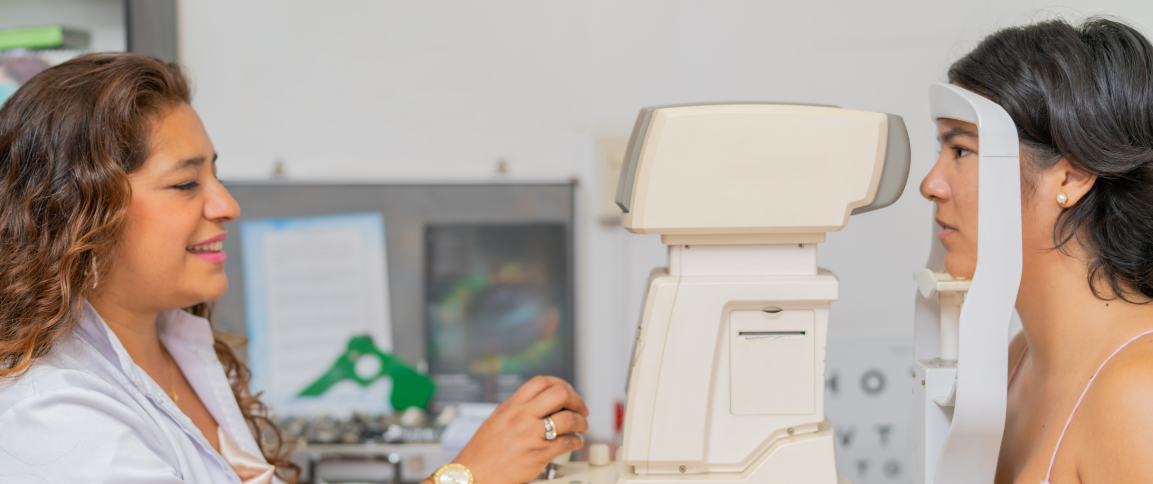
Diabetes can cause damage to the blood vessels in the retina, leading to a condition called diabetic retinopathy. This condition can progress without noticeable symptoms until significant damage has occurred. A diabetic eye exam is crucial in catching early signs of retinopathy, as well as other conditions like glaucoma and macular edema. Early detection and treatment can prevent permanent vision loss.
If you have diabetes, it’s important to have a comprehensive diabetic eye exam at least once a year. Even if you’re not experiencing any vision problems, regular exams allow us to catch any early signs of eye disease before they become more serious. If you have been diagnosed with diabetic retinopathy, we may recommend more frequent exams to closely monitor your condition.

Our diabetic eye exams are designed to thoroughly evaluate the health of your eyes. Here’s what you can expect:

Along with regular eye exams, there are steps you can take to lower your risk of developing diabetic eye diseases:
These lifestyle changes, combined with regular eye care, can help protect your vision.
If we detect signs of diabetic retinopathy or other eye conditions during your exam, our optometrists will discuss your treatment options depending on the stage of retinopathy that is found. These may include:
Our team will work with you to develop a personalized treatment plan to manage your condition and protect your eyesight.

At Victoria Village Optometry, we’re committed to helping our diabetic patients protect their vision. Regular eye exams are the best way to catch eye diseases early and prevent permanent vision damage. Schedule your diabetic eye exam today and take the first step toward safeguarding your vision.
1315 Lawrence Avenue East, Unit 513, Toronto, ON, M3A 3R3, Canada